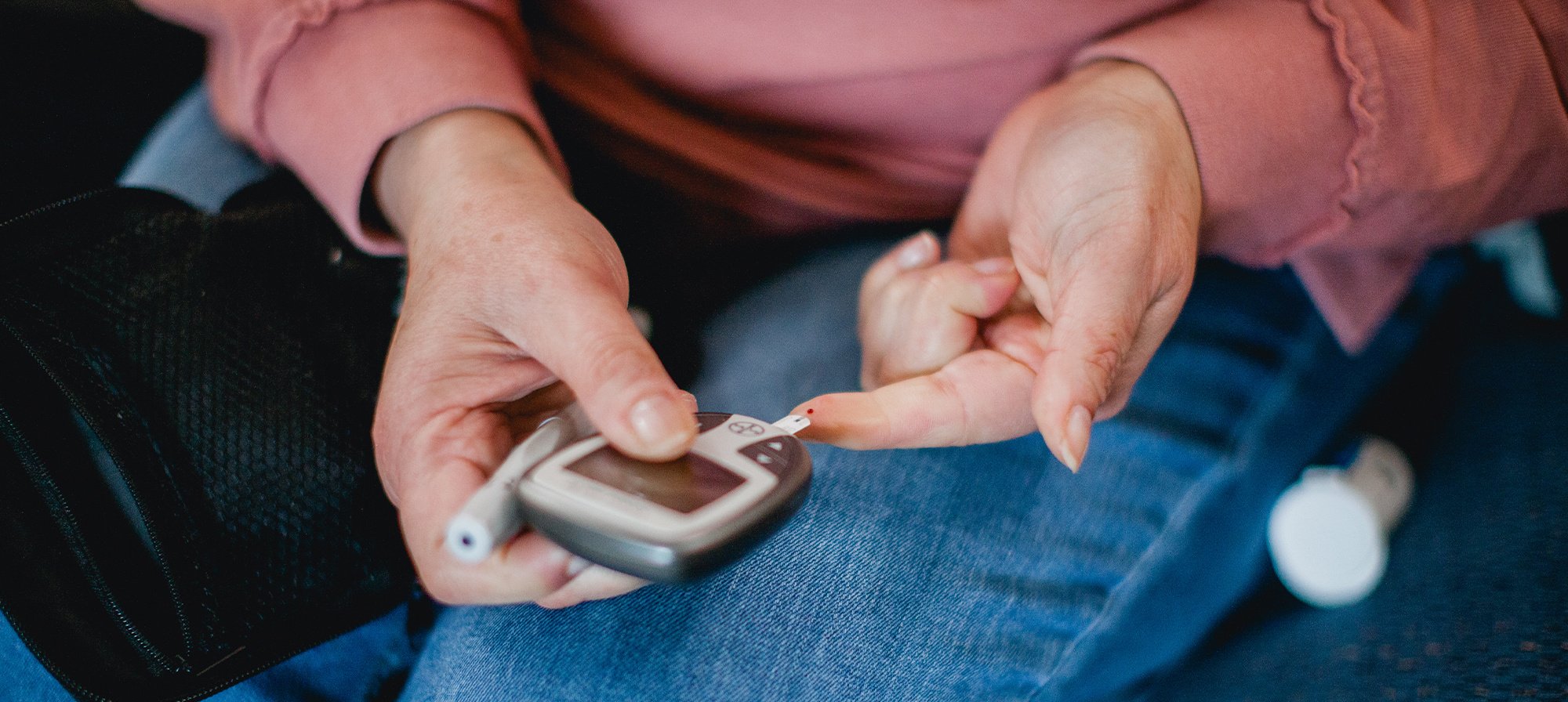While problems with mental health can happen to anyone—no matter their age—you may be more prone to them as you get older. Recognizing signs of mental health issues, such as anxiety or depression, is crucial, because these signs can signal that you may need help. And treatment can make a difference. The better you understand the signs and causes of a mental health issue, the more effectively you can support yourself, or others who may be facing challenges.
Sorting out the signs of mental health issues
Keep in mind that some signs of a true mental health problem—such as fatigue, pain, loss of appetite, changes in sleep, or mood swings—can be misdiagnosed as simple age-related changes in health.
The opposite may also be true—sometimes these signs may not be a mental health problem—but actually are due to age-related changes or an underlying condition. It’s also important to keep in mind that some of the common health changes that come with age can sometimes lead to depression or anxiety, if not addressed.
Fortunately, you can untangle this puzzle by learning how to recognize the signs of a mental health issue. You can then work with your doctor or mental health provider to confirm a diagnosis, get to the root cause of it, and start treatment.

Some symptoms of a mental health problem are milder in their effect on daily life. You may feel a bit down, for example. Or you may have trouble sleeping. A few initial questions to ask yourself are:
- Am I still able to carry on with work and activities of daily living?
- If not, have these problems lasted less than 2 weeks?
If you answered yes to both of these questions, self-care habits may help. These habits can also help protect your mental health at any point in life. You can turn to:
- Regular exercise. Working out boosts the flow of oxygen- and nutrient-rich blood to the brain. It also reduces stress hormones that can cause tension and anxiety. Exercise also increases the birth of cells in the hippocampus, the part of the brain involved in mood regulation. Finally, exercise boosts the production of feel-good brain chemicals that can enhance your mood and help stave off depression and other mental health issues.

- Social and community engagement. Connecting and deepening your bonds with others can counter isolation and loneliness, both risks for depression. Social connections are key to protecting your mental health.
- A more regular sleep schedule. Getting enough sound, uninterrupted sleep each night boosts mental and physical energy, allowing you to more easily cope with daily stress and manage your mood and emotions. Long-term sleep deprivation, on the other hand, can boost the risk for depression.
- Eating healthy foods. The impact of food on mental health is real and affects your overall well-being. A diet high in sugar and ultra-processed foods can harm your mood and brain function. Eating foods rich in nutrients, such as vitamins, minerals, and antioxidants each day can enhance brain function and mood. Check out which foods both help and harm your mental health.
- Meditation, deep breathing, relaxation, and mindfulness exercises. These stress management tools, if used on a regular basis, can go a long way to supporting and protecting your mental health.
- Spiritual health. When you feel tied to something bigger, it can benefit your mental health. Spiritual health can lower stress, provide a sense of purpose, and foster a more positive outlook on life. You can nurture your spiritual health through organized religion, but that is not the only path. Spending time in nature, seeking experiences that evoke awe, or showing compassion for yourself and others can also help you tap into your spiritual self. Tuning into your values and living by them can enhance spirituality, too.
- Self-help books, psychotherapeutic counseling, and/or support groups. Your doctor can refer you to a mental health counselor or support group. You might also ask your doctor, or friends and family, about self-help books they may recommend. Or you can search for some online.
- Mental stimulation. Learn a new language, play a musical instrument, or solve puzzles. These can boost memory and problem-solving skills, and give a sense of accomplishment, which in turn can help protect mental health.
 Signs of a potentially more serious mental health issue and what to do
Signs of a potentially more serious mental health issue and what to do
If you have more severe symptoms—or if your symptoms last longer than 2 weeks—it’s vital that you get in touch with a doctor or mental health professional. Do so right away if you are experiencing any of these symptoms:
- Finding it hard to get up in the morning. If this is an ongoing problem lasting 2 or more weeks, it may be a sign of a more serious mental health problem.
- Sleeping too little or too much. While sleep changes like these may be due to insomnia, they can also be a sign of a mental health problem or can raise the risk for one.
- Having a difficult time concentrating. This may also be accompanied by difficulty making decisions.
- Losing interest in activities you usually enjoy. This may include a loss of interest in social activities, favorite foods, books, movies, or hobbies that you used to enjoy.
- Neglecting personal hygiene or other daily activities of living. Lacking the motivation to perform basic tasks like brushing your teeth, combing your hair, showering, shopping, cooking meals, paying your bills, etc., can signal a mental health issue.
- Thinking about self-harm or suicide. Call The National Suicide Crisis lifeline at 988 if you ever have these thoughts.
Again, if you have any of the above signs, seek help from your doctor and/or a mental health expert right away.

Common life changes that can raise the risk of mental health issues
Some life events or changes that are more common as you age may raise your risk of mental health issues. Here are a few changes that may be more common as you age, along with steps you can take to keep them from leading to mental health problems:
- Retirement and loss of purpose: Some older adults struggle after retiring. Without work to give their days structure and purpose, feelings of depression and emptiness can result. The lack of responsibilities and social interactions can worsen these feelings and lead to loneliness. It can also be harder to stay engaged and feel valued.
What you can do: If you’re retired and feeling disengaged, lonely, or at loose ends—take steps to change your situation. Go back to work, perhaps even part-time. Start your own business or volunteer for a cause. Take an art, literature, or music class. Join or organize meet-up groups for hiking, walking, or biking. Start a book club. These steps and others like them can engage you mentally and emotionally and restore a sense of purpose and meaning to your life. They can also help you make new friends. Together, these positive steps can help protect your mental health. - Grief and loss of loved ones. The loss of loved ones, such as a spouse, a family member, or close friends, can become more common as you age. The grief, if too long-lasting or intense, can impact your mental health and raise the risk for depression and anxiety. Loss of loved ones can also lead to isolation and loneliness—another risk factor for depression.
What you can do: If you’ve lost friends or a loved one through death or divorce, know that grieving is a normal and healthy process. Give yourself time and grace to heal. However, if your grief is overwhelming or has become longstanding or debilitating , reach out to a therapist or a support group for help. - Declining physical health: As you age, your body may not work as well as it used to. The risk for chronic health conditions can increase with age. Conditions like arthritis, heart disease, and diabetes can also cause pain and discomfort—and lead to a loss of independence. These factors, combined with the stress of managing chronic health issues, may cause you to isolate from others and can lead to depression and anxiety.
What you can do: You can adopt healthy lifestyle habits at any age to lower your risk of many health conditions. These same habits can also help you manage any health conditions you may already have—so you can continue to live an engaged and vibrant life. Eating a nutritious diet, exercising, getting sound sleep, taking your prescribed medications properly, and managing stress are just a few ways you can prevent or manage many health conditions. Learn about 3 surprising life skills that can help you cope with age-related changes in your health. - Cognitive decline: The risk for conditions like dementia and Alzheimer's disease increases with age. Some amount of forgetfulness with age is normal and not cause for alarm. But more advanced dementia can cause confusion and memory loss. The fear and uncertainty tied to this may cause anxiety and depression. Plus, the loss of independence and the need for more care can further impact mental well-being.
What you can do: While the risk for dementia increases with age, it’s not inevitable. You can take steps—no matter your age—to protect your cognitive health. Routine workouts, healthy eating, social engagement, and mentally stimulating activities may all help protect you from dementia as you age. If you’re feeling concerned about your cognitive health, talk with your doctor. They can run tests to help pinpoint whether there is a problem.

Final thoughts
Taking care of your mental health—at any age—means facing challenges and being proactive. It’s so important to remember that having a mental health issue does not mean someone is “broken” or did something wrong. Recovery is possible, with treatment and the right self-care habits.
By noticing signs of mental health issues and taking steps to prevent or address them, you can enjoy a better life. Keeping your social life, body, and mind active are all great ways to protect and improve your mental well-being. So, whether it's joining a new club, reconnecting with old friends, or simply taking a daily walk, every small step can make a positive impact. Commit to making mental health a priority each day to protect and enhance your well-being for life.
Not a Silver&Fit® member? Learn more about everything the program has to offer, including more helpful healthy living tips like this, here on our website.
This information is not intended to take the place of regular medical care or advice. Please check with your doctor before using this information or beginning any self-care program. Images used for this article do not depict any members of the Silver&Fit program.
References
Centers for Disease Control and Prevention. (2024, September 3). Depression and aging. https://www.cdc.gov/healthy-aging/about/depression-aging.html
Centers for Disease Control and Prevention. (2024, March 26). Health effects of social isolation and loneliness. https://www.cdc.gov/social-connectedness/risk-factors/index.html
Centers for Disease Control and Prevention. (2024, August 8). About mental health. https://www.cdc.gov/mental-health/about/?CDC_AAref_Val=https://www.cdc.gov/mentalhealth/learn/index.htm
Cleveland Clinic. (2023, August 4). Older adults and mental health: What to watch for and how to help. https://health.clevelandclinic.org/depression-in-elderly
Columbia Psychiatry. (2022, March 16). How sleep deprivation impacts mental health. https://www.columbiapsychiatry.org/news/how-sleep-deprivation-affects-your-mental-health
Grajek, M., Krupa-Kotara, K., Białek-Dratwa, A., Sobczyk, K., Grot, M., Kowalski, O., & Staśkiewicz, W. (2022). Nutrition and mental health: A review of current knowledge about the impact of diet on mental health. Frontiers in Nutrition, 9. https://doi.org/10.3389/fnut.2022.943998
Gundersen Health System. (2024, March 19). The link between nutrition and your mental health. https://www.gundersenhealth.org/health-wellness/eat-move/the-link-between-nutrition-and-your-mental-health
Grossoehme, D. H., Friebert, S., Baker, J. N., Tweddle, M., Needle, J., Chrastek, J., Thompkins, J., Wang, J., Cheng, Y. I., & Lyon, M. E. (2020). Association of Religious and Spiritual Factors With Patient-Reported Outcomes of Anxiety, Depressive Symptoms, Fatigue, and Pain Interference Among Adolescents and Young Adults With Cancer. JAMA network open, 3(6), e206696. https://doi.org/10.1001/jamanetworkopen.2020.6696
Harvard Health Publishing. (2020, June 15). Too little sleep, and too much, affect memory. https://www.health.harvard.edu/blog/little-sleep-much-affect-memory-201405027136
Harvard Health Publishing. (2021, February 2). Exercise is an all-natural treatment to fight depression. https://www.health.harvard.edu/mind-and-mood/exercise-is-an-all-natural-treatment-to-fight-depression
Harvard Medical School. (2021, October 1). Sleep and mood. https://sleep.hms.harvard.edu/education-training/public-education/sleep-and-health-education-program/sleep-health-education-87#:~:text=QualityAuto,such%20as%20depression%20or%20anxiety
Mackenzie, C., & Abjulrazaq, S. (2019). Social engagement mediates the relationship between participation in social activities and psychological distress among older adults. Aging & Mental Health, 25(2), 299–305. https://doi.org/10.1080/13607863.2019.1697200
Mayo Clinic. (2022, December 13). Mental illness. https://www.mayoclinic.org/diseases-conditions/mental-illness/symptoms-causes/syc-20374968
National Center for Biotechnology Information. (2020). Social isolation and loneliness in older adults: Opportunities for the health care system. https://www.ncbi.nlm.nih.gov/books/NBK557971/
National Institute of Mental Health. (2024, December). Caring for your mental health. https://www.nimh.nih.gov/health/topics/caring-for-your-mental-health
National Institute on Aging. (n.d.). Health benefits of exercise and physical activity. https://www.nia.nih.gov/health/exercise-and-physical-activity/health-benefits-exercise-and-physical-activity
National Institute on Aging. (n.d.). Sleep and older adults. https://www.nia.nih.gov/health/sleep/sleep-and-older-adults
Office of Disease Prevention and Health Promotion. (n.d.). Take charge of your health care. https://odphp.health.gov/myhealthfinder/doctor-visits/talking-doctor/take-charge-your-health-care
Robinson, L., Smith, M., & Segal, J. (2025, January 9). Depression in older adults. Help Guide. https://www.helpguide.org/mental-health/depression/depression-in-older-adults
Rudd, M., Vohs, K. D., Aaker, J. (2012). Awe expands people's perception of time, alters decision making, and enhances well-being. Psychological Science, 23(10), 1130-1136. https://journals.sagepub.com/doi/abs/10.1177/0956797612438731
Schwartz, E., & Litwin, H. (2017). Are newly added and lost confidants in later life related to subsequent mental health? International Psychogeriatrics, 29(12), 2047–2057. https://doi.org/10.1017/S1041610217001338
Stewart, V., Judd, C., & Wheeler, A. J. (2022). Practitioners' experiences of deteriorating personal hygiene standards in people living with depression in Australia: A qualitative study. Health & Social Care in the community, 30(4), 1589–1598. https://doi.org/10.1111/hsc.13491
Taylor, H. O., Taylor, R. J., Nguyen, A. W., & Chatters, L. (2018). Social isolation, depression, and psychological distress among older adults. Journal of Aging and Health, 30(2), 229–246. https://doi.org/10.1177/0898264316673511
World Health Organization. (2023, 20 October). Mental health of older adults. https://www.who.int/news-room/fact-sheets/detail/mental-health-of-older-adults
This article was written by Stephanie Ruiz, edited by Gail Olson, and clinically reviewed by Elizabeth Thompson, MPH, RDN, on March 6, 2025.





